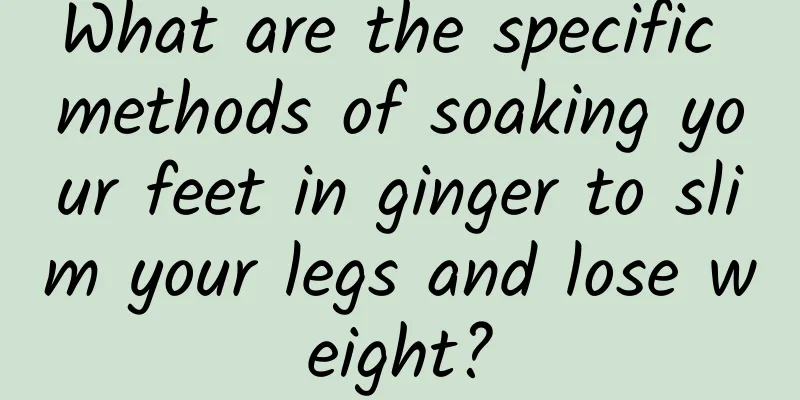What to do if the lingual nerve is injured

|
The tongue is an important organ for us to taste food, and it is also the main part of our pronunciation. If there is a serious problem with the tongue, it will lead to loss of voice. The nerves of the tongue are the system that controls the movement of the tongue. If the nerves of the tongue are damaged, timely treatment is required. Let’s take a look at the treatment methods of the lingual nerves. 1. Treatment of medullary palsy The most serious symptoms of medullary paralysis are often speech disorders and swallowing disorders. Food and a large amount of saliva often remain in the mouth, causing frequent choking and coughing. However, the cough is often weak, and aspiration pneumonia and suffocation often occur. Finally, patients also have difficulty chewing. They are unable to bite hard food and can only eat soft and semi-liquid food. In severe cases, they have to rely on a nasogastric tube to maintain eating, and finally die of exhaustion. In case of bulbar palsy, in addition to treating the cause, symptomatic treatment is also important. Patients with dysphagia and dyspnea must be treated appropriately, such as nasogastric feeding, intravenous rehydration, infection prevention, and tracheotomy when necessary. 2. Treatment of the cause of hypoglossal nerve injury (1) Tumors at the craniocervical junction include tumors that originate from the foramen magnum, tumors that grow from above the foramen magnum into the spinal canal, and tumors that develop from the upper cervical segment to the posterior cranial fossa. Tumors in this area require surgical resection regardless of their pathological type, and those with hydrocephalus should undergo cerebrospinal fluid shunt surgery in a timely manner. (2) Tumors in the jugular foramen area Once a benign tumor in the jugular foramen area is diagnosed, it should be surgically removed. (3) Treatment of hypoglossal neuroma should strive for complete surgical resection. (4) Congenital foramen magnum malformation refers to congenital developmental abnormalities occurring in the foramen magnum area at the base of the skull and the upper cervical spine (a special area at the craniocervical transition), often accompanied by damage to the nervous system, or a neurological malformation occurring alone in this area. These include flat skull base, skull base depression, atlanto-occipital fusion, incomplete cervical segmentation, atlantoaxial dislocation and cerebellar tonsillar herniation. Flat skull base: This deformity generally does not cause clinical symptoms when it exists alone, so no special treatment is required. Skull base indentation: Posterior decompression is not very effective for this type of skull base indentation and is somewhat dangerous. Only resection of the hypertrophic odontoid process through the oropharyngeal approach can be effective. Atlantoaxial dislocation can be treated with anterior and posterior atlantoaxial fusion. Cerebellar tonsillar herniation deformity can be treated with posterior cranial fossa decompression and partial cerebellar tonsillectomy. (5) Treatment of true and false bulbar palsy causing primary intracranial diseases in and above the medulla oblongata and control of intracranial pressure. 3. Hypoglossal nerve reconstruction After a simple motor nerve injury, the hypoglossal nerve should be reconstructed, especially when the glossopharyngeal nerve and vagus nerve are also damaged, or the contralateral hypoglossal nerve is also damaged. When performing hypoglossal nerve-facial nerve anastomosis, the effect of this anastomosis is better than that of accessory nerve-facial nerve anastomosis because the central part of the hypoglossal nerve and the facial nerve have a "synergistic" effect. Moreover, the symptoms of unilateral tongue paralysis can be relieved after a few weeks, and the associated movements can be significantly reduced after a few years. Severe damage to the lingual nerve can lead to atrophy of the tongue, so it is recommended that patients receive treatment in a timely manner and do not delay the treatment of the disease. They should actively cooperate with the doctor's instructions, pay more attention to rest, eat light food, and be careful not to drink soup that is too hot, as it can easily burn the tongue. |
<<: What to do if the hand nerve is damaged
>>: Treatment for facial nerve damage
Recommend
Is low pressure 40 normal?
The human body's blood pressure is usually ma...
What are the symptoms of muscle damage
During normal exercise, if improper force is used...
Platycodon grandiflorum pictures
I don't know if you have heard of Platycodon ...
Is black bean soup effective for hair growth?
In order to effectively promote hair growth, many...
What foods can cause miscarriage in pregnant women
Pregnancy lasts for ten months and delivery takes...
What ointment to use for vulvar itching and swelling
The vulva is prone to itching and redness and swe...
Best combination of raspberries
The thornberry is found throughout the Northeast....
What symptoms does cervical spondylosis cause?
Speaking of cervical spondylosis, it is a common ...
What are the differences between pseudo-body odor and body odor?
Summer is coming again. In summer, many people ar...
Can uremia be cured?
Speaking of disease, this word is scary in our he...
Symptoms of constipation in newborns
The physical condition of a newborn baby is speci...
Pain inside the ears is not always caused by heat, so be careful if you have this symptom!
Does ear pain necessarily mean it’s caused by inf...
Chuanbei lung clearing syrup
Many people, when they encounter some physical di...
How to Whiten Teeth Naturally
If you want to whiten your teeth, you must first ...
What is the reason for the baby's upper eyelid to be red and swollen
If your baby's upper eyelids become red and s...









